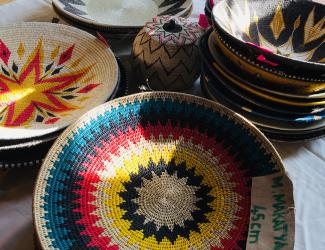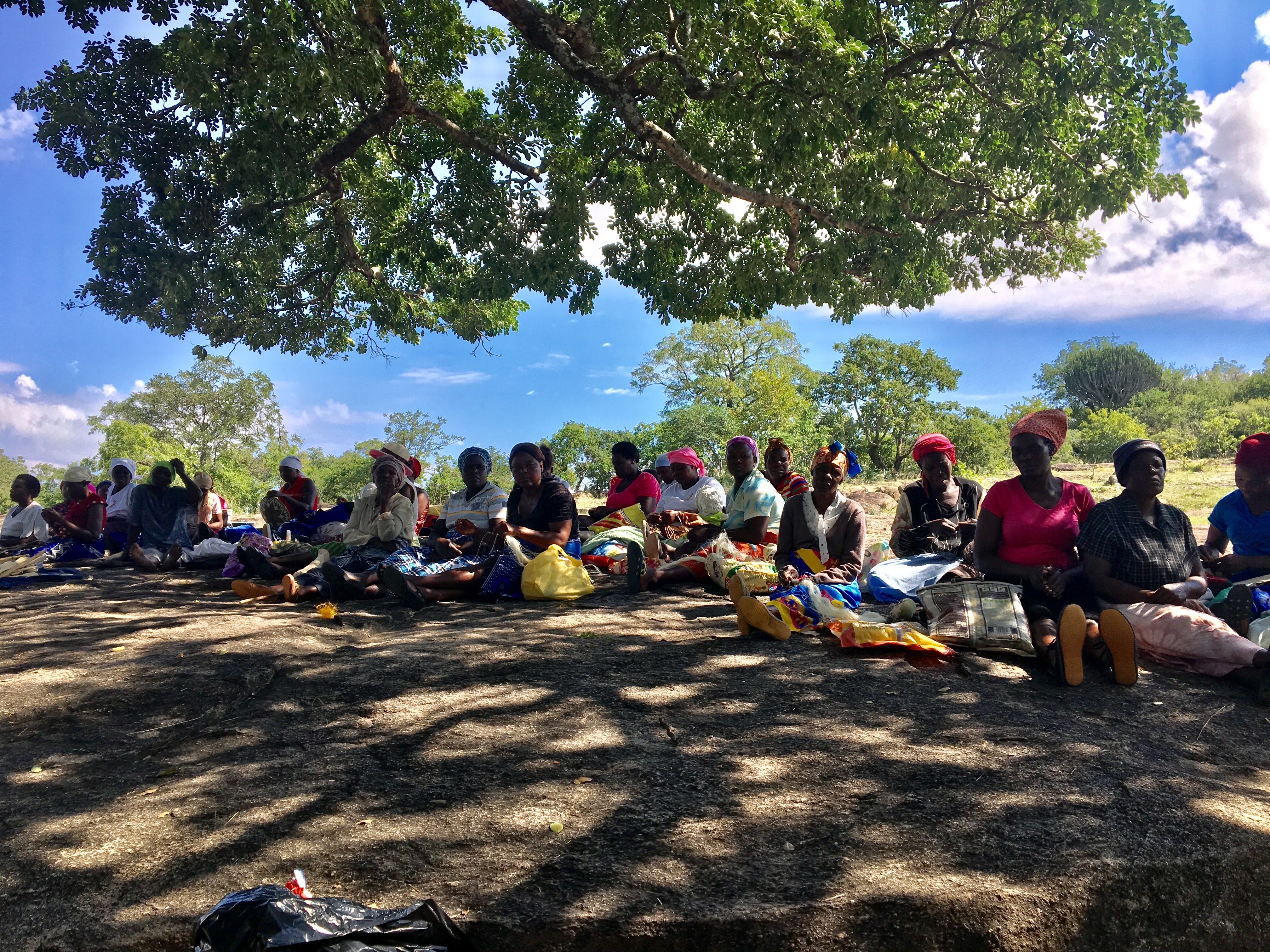
Zienzele Foundation co-founder Prisca Nemapare grew up in rural Zimbabwe. From an early age she was a driven student, winning scholarship after scholarship as she blazed her path towards a doctoral degree in nutrition, followed by a successful career as a university professor at Ohio University. Today, she co-leads an organization devoted to ensuring that the health, economic, and political crises in Zimbabwe do not prevent others from finding their own way forward.
In the years since Nemapare’s childhood, a dictatorship overthrew Zimbabwe’s democratic government. For decades, social and economic tensions kept the country on the brink of civil war. The AIDS crisis devastated thousands of families, infecting over a quarter of the population. More than 1.3 million children were orphaned by the epidemic, left in the care of grandparents or in one of 50,000 child-headed households.

Yet the Zienzele Foundation—named with the Nbdele word for self-reliance—is devoted to empowerment, not charity. In the words of the organization’s other co-founder, Nancy Clark, the foundation works with “groups of women who knew how to garden, but didn’t have seeds.” Hailing from rural villages, these women could craft extraordinary baskets with strikingly inventive and intricate whirling designs, but they had no market at which to sell them. That is where Nempare and Clark could help.
For 20 years, the Zienzele Foundation has purchased baskets directly from women who care for AIDS orphans in Zimbabwe for resale in the United States. With the equitable prices paid to them in Zimbabwe, caregivers can buy food and other household necessities. Moreover, unlike many fair trade goods, the proceeds from international sales also benefit the makers’ communities. Every cent of Zienzele’s profits is reinvested in the Masvingo region, paying for AIDS-orphaned children’s school tuition, national exam fees, and other needs. The organization retains only one paid staff member; volunteer representatives in each school district take charge of the rest. In Zienzele’s first year of operation, their work sent 50 children to school. Today, 20 years later, the Foundation supports over 1,000 students and sends extra assistance to between 50 and 70 child-headed households every year.
Education in Zimbabwe is not free. Its rapidly inflating costs push even the highest achieving poor students out of school and block their entry to national universities and economic opportunity. But, as Zienzele has proven over and over again, with access to education, these students become teachers, economists, businesspeople, and future leaders. They are a future worth investing in. “I am actually one of the beneficiaries,” said Innocent Mpoki, who represented Zienzele at Cultural Survival’s first virtual Bazaar on July 25. “The Foundation has been helping me stay in school for the last 20 years, since I was in first grade. Currently I am a graduate student in New York City, where I am studying for a Master of International Affairs at Baruch College.”
In his presentation, Mpoki highlighted the wealth of cultural knowledge woven into the baskets. Every basket is made from entirely natural materials: grass harvested from the savannah; sisal fibers used to bind each row; dyes derived from tree leaves and bark, which shine against the natural white of the untreated grass. Each design is unique to its weaver; some are monochrome and minimal, others are vibrant and sun-soaked. The baskets are strong enough for daily use, but light enough to hang on a wall like the works of art they are.
Led by the indefatigable initiative of the women on the ground, Zienzele’s programs have only grown and diversified over the past two decades. Through capacity-building microloans, the Foundation now supports women’s efforts to create gardens, cultivate livestock, sell textiles, and construct community centers that can serve as local markets. Their work provides spaces where women can teach the next generation to weave baskets and maintain communities, making their futures stronger by keeping their heritage alive.
Missed the virtual Cultural Survival Bazaar? Watch it and support Indigenous artists at bazaar.cs.org/live.
All photos by Nancy Clark.
